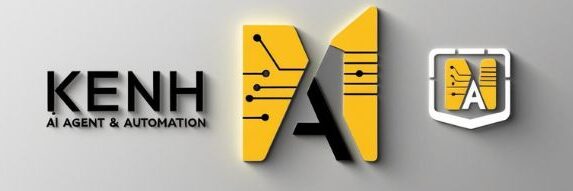MCP vs Prompt Engineering: Which Is More Effective?
As AI continues to reshape how we work, two major paradigms are emerging:
Prompt Engineering: Writing the perfect instruction for a single AI model
MCP (Multi-agent Collaborative Process): Designing systems of AI agents working together
So, which approach is more effective in 2025? The answer depends on your goals, scale, and use case.
This article compares both approaches across five key dimensions—and shows how Claude AI, GPT-4.5, and AutoGPT fit into the equation.
1. The Rise of AI Agents
AI Agents are no longer isolated tools—they’re collaborative, semi-autonomous workers. The shift from “prompting” a single model to orchestrating multiple agents has led to more scalable, robust AI systems.
But Prompt Engineering isn’t dead. It’s evolving too—especially as foundation models become more multimodal and context-aware.
MCP and Prompt Engineering are not enemies—they’re tools in your AI toolbox.
2. What Is Prompt Engineering?
Prompt Engineering is the practice of crafting inputs to get better outputs from AI models like GPT-4.5 or Claude AI.
Strengths:
Fast to prototype
Great for one-off tasks
Highly creative when human-in-the-loop is involved
Essential for low-code/no-code AI use
Weaknesses:
Manual
Doesn’t scale
Hard to manage across teams
Output quality depends on prompt quality
Example:
Prompt: “Write a 60-second script explaining MCP framework in a friendly tone for Gen Z.”
One input → one output. The human must still direct, evaluate, and adjust.
3. What Is MCP (Multi-agent Collaborative Process)?
MCP is a design pattern where multiple AI agents work together, each with defined roles, goals, and communication protocols.
Strengths:
Modular
Scalable and reusable
Supports automation at workflow level
Ideal for enterprise and production use
Weaknesses:
Requires setup (logic, orchestration layer)
Harder to prototype
Needs monitoring and feedback loops
Example: An AI workflow for writing a weekly newsletter might include:
Claude AI → research assistant
GPT-4.5 → scriptwriter
AutoGPT → scheduler and publisher
Each agent operates autonomously, feeding the next.
4. Side-by-Side Comparison
| Criteria | Prompt Engineering | MCP Framework |
|---|---|---|
| Speed to Start | ✅ Very fast | ❌ Needs setup |
| Scale & Automation | ❌ Manual | ✅ Automatable |
| Best For | 1-off content, idea generation | Complex workflows |
| Human Involvement | High | Medium (with review) |
| Error Handling | Manual retry | Built-in agent escalation |
| Ideal Tools | GPT-4.5, Claude | Claude + AutoGPT + orchestration layer (e.g. LangChain, CrewAI) |
5. Claude AI: The Bridge Between Both Worlds
Claude AI excels in deep contextual reasoning, making it ideal for both structured workflows and advanced prompts.
Claude in Prompt Engineering:
“Summarize this report in 200 words, tone: confident, no jargon.”
Claude in MCP:
Research agent → validates source credibility
Refinement agent → checks brand tone and legal compliance
Claude’s strength lies in its multi-turn context retention and high reliability, making it central to both methods.
6. GPT-4.5: Creative Prompt Master
GPT-4.5 is your go-to creative assistant, especially strong when:
You need variety (marketing copy, blog intros, storytelling)
Tone and format matter
You’re iterating quickly with human review
However, in MCP it works best as a writing or synthesis agent—taking structured input and generating final outputs for emails, blogs, or ads.
7. AutoGPT: The Automation Enabler
While prompt engineering can’t trigger real-world tasks, AutoGPT can.
It enables agents to:
Move data between tools
Set reminders
Create documents
Publish posts
Integrate with CRMs and CMSs
In the MCP stack, AutoGPT functions as the execution layer, completing and reporting on tasks.
8. Use Case Examples
Prompt Engineering Wins:
“Generate 10 TikTok video ideas for AI tools.”
“Summarize this whitepaper for executives.”
“Write a tweet thread on MCP framework.”
MCP Wins:
“Produce weekly newsletter: research → write → review → schedule”
“Automate onboarding: personalize welcome emails + Slack + Notion setup”
“Run daily AI news roundup with Claude + GPT + Zapier”
9. SEO Keywords for This Topic
To increase your blog’s visibility, target these keywords:
prompt engineering vs agent workflow
what is MCP framework AI
Claude AI vs GPT for workflow
best way to automate content
AutoGPT use cases
multi-agent AI systems
orchestration AI 2025
10. So, Which Is More Effective?
TL;DR:
| You want to… | Use |
|---|---|
| Prototype a content idea fast | Prompt Engineering |
| Build a scalable system | MCP |
| Work solo or in a creative role | Prompt Engineering |
| Run an AI-powered business | MCP |
| Create content at scale | Hybrid: prompt + MCP |
| Automate publishing, emails, marketing | MCP |
Long-term, MCP is more scalable and sustainable—but prompt engineering remains a power skill for control and creativity.
Final Thoughts: Don’t Pick One. Master Both.
Prompt Engineering is the new literacy—but MCP is the new operating system.
By learning how to write better prompts and build collaborative agent systems, you become a next-gen professional who can:
Design intelligent systems
Delegate complex workflows to AI
Deliver results with speed and precision
Want to see how Claude AI, GPT-4.5, and AutoGPT work together?
👉 Try AI Smart Workflows with MagicLight and build your own agent-powered future today.
